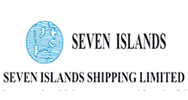Amid Donald Trump ire, IMO defers shipping carbon tax vote to 2027

Amid increasing pressure by the US against the International Maritime Organisation’s (IMO’s) proposed net-zero shipping framework, a vote on the crucial decision by the maritime watchdog’s member nations has been deferred by a year, government officials in the know said.
US President Donald Trump on Friday expressed his clear intent to completely disobey the framework. Also, his administration had repeatedly asked IMO member nations to vote against the plan, which would put a carbon levy on polluting vessels.
“I am outraged that the International Maritime Organization is voting in London this week to pass a global Carbon Tax. The United States will NOT stand for this Global Green New Scam Tax on Shipping, and will not adhere to it in any way, shape, or form,” Trump said in a post on Truth Social.
The framework — now delayed to be voted on by a year at Marine Environment Protection Committee’s second extraordinary session — which was expected to increase shipping costs for India by up to $100 million, was supported by New Delhi in April in view of its own climate change goals.
The International Chamber of Shipping (ICS), which represents more than 80 per cent of the global shipping fleet, expressed its disappointment with the proceedings.
“We are disappointed that member states have not been able to agree a way forward at this meeting. Industry needs clarity to be able to make the investments needed to decarbonise the maritime sector, in line with the goals set out in the IMO GHG strategy. As an industry we will continue to work with the IMO, which is the best organisation to deliver the global regulations needed for a global industry,” Thomas A. Kazakos, ICS Secretary General said.
“We are disappointed that member states have not been able to agree a way forward at this meeting. Industry needs clarity to be able to make the investments needed to decarbonise the maritime sector, in line with the goals set out in the IMO GHG strategy. As an industry we will continue to work with the IMO, which is the best organisation to deliver the global regulations needed for a global industry,” Thomas A. Kazakos, ICS Secretary General said.
"The total compliance cost is projected at $87-100 million annually by 2030, assuming partial reliance on remedial units. This is equivalent to a 14 per cent increase in fuel cost and 5 per cent increase in freight rates — well within industry operating margins," it had said.
The regulator had asked all shippers and stakeholders to review and initiate necessary preparatory measures on monitoring ship-level fuel intensity data while rethinking procurement strategies for low-greenhouse gas (GHG) fuels, planning green infrastructure upgrades at ports, and engaging with classification societies for early compliance assessment.
According to the government’s own assessments, out of India’s fleet of 1,524 registered vessels, only 212 ships (13.9 per cent) qualify as foreign-going and above 5,000 GT (gross tonnage). Of these, around 135 ships are regularly engaged in overseas trade, and would have been subject to the compliance.
However, foreign vessels used by Indian exporters would have been subject to additional costs from this regime, and as such, the DG Shipping had asked traders to factor GHG compliance in chartering decisions to minimise long-term freight inflation risks.
In April, India and 62 other countries adopted the net-zero framework for the shipping industry.
Approved by the Marine Environment Protection Committee during its 83rd session (MEPC 83), the measures include a new fuel standard for ships, and a global pricing mechanism for emissions.
Source: Business Standard
#theshippingtribune #donaldtrump #imo #shipping #crobantax #2027









.png)













.png)





















Comments